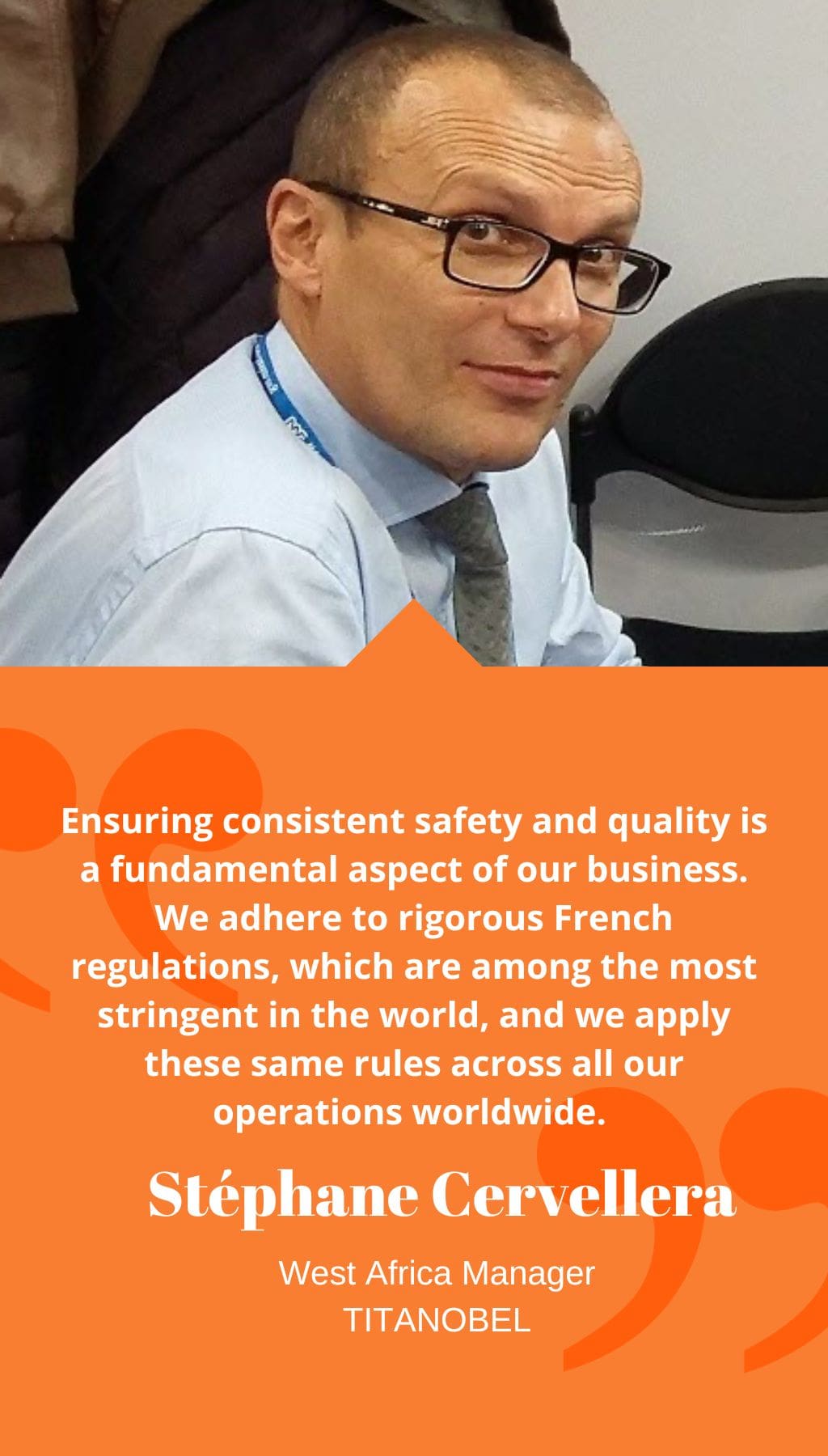
- Senegal | 27 April 2019

Can you provide an introduction to Titanobel and its international footprint?
Titanobel, established in 1871, is a leading French company specializing in drilling and blasting services. With around 500 employees, we have evolved from an explosives company to become a prominent player in our industry. Over the years, we have significantly expanded our international presence. While international markets accounted for about 10% of our business 15 years ago, that figure has now risen to 30%, and we aim to further increase it to 40%. West Africa has been a particularly important region for us, contributing between 10 to 13 million euros to our total global turnover of 25 million euros per year. In addition to West Africa, we have experienced high growth in territories such as South Africa, New Caledonia, Mongolia, and French Guiana. We collaborate with distributors in countries like Senegal, Togo, Ghana, and Sierra Leone, and we are actively seeking local partners in Burkina Faso and Côte d’Ivoire.
What have been the most recent investments made by Titanobel?
We have undertaken several recent investments to strengthen our operations. Firstly, we established blasting and drilling subsidiaries in Senegal and Benin, allowing us to expand our presence and services in those countries. Additionally, we made strategic acquisitions, including Enviro Blasting in South Africa, to enhance our capabilities and market position. Looking ahead, we plan to establish a subsidiary in Cameroon and explore further acquisition opportunities to establish a local presence.
To overcome logistical challenges and reduce transportation costs, we have been focusing on increasing our production sites for explosives outside of France. By 2021, we aim to build two new plants, one in Mongolia and another in New Caledonia. Furthermore, we recognize the growing complexities of logistics in West Africa and plan to open a plant in the region to better serve our clients.
What are the latest developments in terms of innovation at Titanobel?
Innovation is a key focus for Titanobel, and we are constantly exploring new ways to improve our products and services. One significant area of research is the replacement of ammonium nitrate with an alternative commonly used in agriculture. We are actively studying this substitution and expect to publish the results of our research in the coming months. Additionally, we continue to develop emulsion substitutes with the goal of ultimately replacing dynamite with a more stable substance, ensuring safety and efficiency in blasting operations.
How do you observe the uptake of technology in West Africa’s mining industry?
The adoption of technology in the mining industry across West Africa has been relatively slow compared to other regions. The costs associated with implementing new technologies can be a barrier for some companies. To address this, it is essential to develop local technological competencies and expertise. At Titanobel, we employ a team of experienced technicians and engineers, and we have also initiated training programs for local technicians to enhance their skills and knowledge.
How does Titanobel ensure consistent safety and quality for its products?
Ensuring consistent safety and quality is a fundamental aspect of our business. We adhere to rigorous French regulations, which are among the most stringent in the world, and we apply these same rules across all our operations worldwide. We have established a routine of visiting our drilling subsidiaries in Senegal, South Africa, and New Caledonia each year to provide quality control and assistance. Our primary priority is to prevent injuries, and a significant portion of our investment goes into creating safe workplaces and manufacturing processes.
How has the COVID-19 pandemic affected Titanobel’s business?
The impact of the pandemic has varied across different countries. In Mongolia and South Africa, operations were significantly halted, causing disruptions to our activities. However, in West Africa, we have not experienced any major impact on revenues, apart from the limitation on travel. We quickly adapted to the situation by leveraging digital communication platforms and modifying our decision-making processes. Managing operations remotely has presented its challenges, but it has also allowed our subsidiaries to gain autonomy. Initially, we faced difficulties in equipping our employees with the necessary IT tools, but we have now normalized teleworking, making us better prepared to handle future waves of the pandemic. However, building and maintaining relationships with customers has become more challenging, and we acknowledge the value of office interactions and the exchange of ideas that we miss in the current circumstances.
What are the main priorities for Titanobel moving forward?
We have several key priorities for the future. One major milestone is the expansion of our operations in Mongolia, where we recently began producing explosives after establishing our subsidiary there this year. Additionally, we are focused on constructing a plant in West Africa to enhance our local presence and better serve the region’s growing needs. Overall, we remain committed to expanding our international footprint, especially during times of uncertainty, as a widespread presence allows us to mitigate potential economic shocks in any particular country or region.














